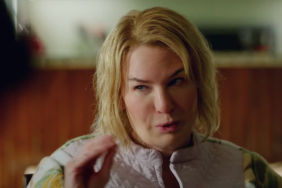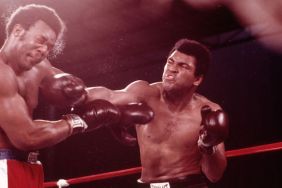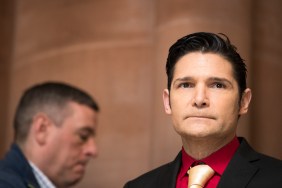
CraveOnline: You happened to be in Above the Law which was Steven Seagal’s first movie, and was sort of the beginning of Seagalsploitation. Was that fun to be a part of the beginning?
Pam Grier: I was a part of his first film which was really great because he was Aikido and I’d studied Aikido. We would talk about our martial arts and our training and when I started as a little girl. I started with Karate which is an external form and I moved to an internal form of Kung Fu with Qinong so it was like, “Oh wow, you know what dojo is.” He had his own dojo in Los Angeles. He was very profound at what he loved and I’m so glad he brought it to film. So it was good for people to see different types of form.
He still gets to do it only it’s on video now. I still watch him.
Oh, people will watch what is executed well. If it’s not, word of mouth will kill it. Don’t even waste your time. You try to do your best, and to support you is your director and your stunt people and coordinator and whoever writes the screenplay. Make it interesting and unique. That’s all people want. They just can’t see things over and over again. Redundancy will kill your audience.
Was Bones sort of like Snoopsploitation?
Bones was great. It was supernatural. He loved supernatural. It was just great to be a part and be with him. I enjoyed that, so big fan of Snoop and I wanted to be in the film with him where we now infinitely in a film together, before he became Snoop Lion.
When I went back and re-watched Foxy and Coffy, I noticed they used the F-word a lot. Not fuck, the other F-word that I still don’t like to say. That’s just how they spoke back then. Was that an unfortunate artifact of the era there?
Historically, there is jargon and dialogue that is generational, and then people learn and evolve from it. Pretty much they probably don’t use that word except for among each other. It’s political, it’s gender, marginalizing and only certain people use it and some people don’t. I’m not kidding, ten years from now, you may not ever hear that word again, in film or on stage or anything, unless it’s something that was written in the ‘70s and they use it to be derogatory and mean-spirited. If it’s a part of an art form, it will be used. If not, I don’t think so.
I did notice the people who use the word in those movies are the despicable men, the bad guys. So they would say bad things.
Yes, they’re the angry villain. They are the villain and they should have villainous dialogue.
Do you appear in any of the other “Unsung Hollywood” episodes giving an interview on other subjects?
No, just this one about myself and it was quite a bit because they had five hours of content. How do you whittle it down to 40 minutes? But they do have me putting the horse in the back of the Jaguar, Richard Pryor’s horse when he was attacked, from my memoir. Taking his horse to the vet in my yellow four-door Jaguar. They do have that.
Do they have photos or archival footage of that incident?
No, there’s no photographs. As a matter of fact, it was such an emergency situation that no one had time to take pictures. The vet and staff was out in the parking lot waiting to see us drive up with the horse in the yellow Jag. I did save the horse’s life.
I remember that story. There are some other good “Unsung Hollywood” episodes like Cooley High. Would you have had any thoughts on those?
Well, you see, it’s a historical narrative. If they don’t do all of these incredible artists that they didn’t do when they were at the height, the pinnacle of their career, then it’s lost and it won’t inspire. That music, to have full bands, orchestration and bands and the style. To have Quentin who’s a big fan of certain music out of the ‘60s and ‘70s be in Jackie Brown, that will help an artist to put great music in, whether it’s theater or film. I can’t wait to see those shows. It’s going to be fantastic.






